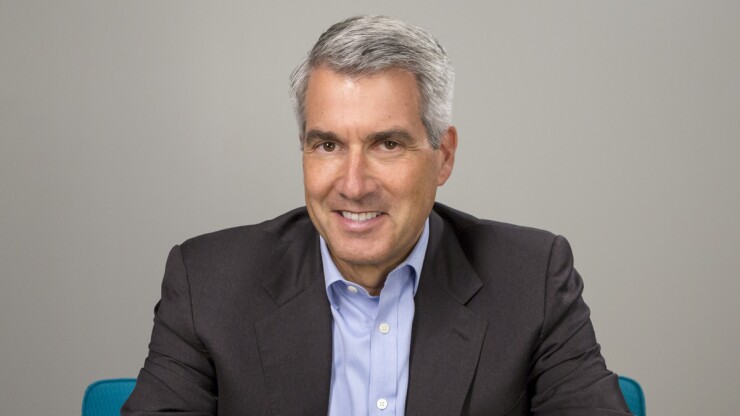
Strong card sales, loan growth and deposit inflows during the first quarter give Discover executives confidence in their goal to become the nation's leading digital bank.
The Riverwoods, Illinois-based company on Wednesday said revenue for the first quarter rose 29% year-over-year to $3.8 billion. Receivables saw healthy growth across Discover's credit card, student loan and personal loan segments despite tighter underwriting criteria that caused a slowdown in credit card account growth.
"We believe our earnings power, balance sheet strength, investments in people and advancements and capabilities support our strategy of becoming the leading digital consumer bank," Discover CEO Roger Hochschild told analysts during a Thursday conference call.
Consumer deposit balances during the quarter rose 17% over the same period a year earlier, helped by Discover's savings account that pays 3.75%.
Discover is still on track to launch its checking account with a 1% cash-back debit card this summer or fall, after pulling back on the plan last year when the initial rollout was vexed by fraud, executives said.
Adding the checking account with a debit rewards program is the final piece that will put Discover in a position to be the nation's leading consumer digital bank, Hochschild said in an interview.
"The bank model of the future is digital, and it's not about branches. Part of the reason we're growing is we can afford to provide an attractive rate on our savings accounts compared to traditional branch banks, because we don't have that high-cost infrastructure," Hochschild said.
Hochschild said he believes Discover has an edge over existing digital banks, citing its deep investments in technology, strong position in credit cards and role as the second-largest provider of student loans, largest provider of prime personal loans and largest provider of closed-end home equity loans.
The recent banking turmoil also plays in Discover's favor, he said, noting that more than 90% of Discover's deposits are insured and the company has robust funding of its own loans.
"Too many people still think that we're just a credit card issuer," Hochschild said. "We're investing on the marketing side as well to build awareness of our broad value proposition."
This week, Discover began requiring employees to work from company offices at least three days per week.
"There's a small vocal minority who are not happy, but we have a collaborative, people-based culture, and personal interactions are a key part of that," Hochschild said.
Discover's total loans during the quarter rose 21% over the same period a year earlier to $113 billion. Credit card loans rose 22%, while personal loans grew 21% and private student loans grew 2% year over year.
However, the company's results sent some mixed signals. Net income for the quarter was $1 billion, down from $1.2 billion a year earlier, as expenses spiked and Discover increased its loan-loss provisions to account for rising charge-offs.
The company had a $1.1 billion provision for credit losses compared with a $175 million release of loan-loss reserves during the same period a year earlier.
Total operating expenses rose 22% to $1.4 billion during the first quarter due to higher costs for headcount and wages, John Greene, Discover's chief financial officer, told analysts. Marketing expenses rose 26% to support card and consumer banking products, and the cost of professional fees alone during the quarter rose 31%.
New-card-account growth during the first quarter slightly decelerated, reflecting the tightening of underwriting standards over the past several months as the economy weakened, Greene said. On the other hand, more consumers revolved loan balances during the quarter than they did a year earlier.
Discover Network volume for the quarter was up 8% to $52 billion, and first-quarter volume for the company's Pulse debit network rose 9% to $65 billion. Payments volume on Discover's Diners Club International card network was $9.2 billion, flat from the most recent quarter but up 28% over the same period a year earlier, reflecting a sustained post-pandemic rebound.
Discover also revised its loan-growth forecast for the year from low double digits to "low to mid teens," and while many other banks have increased their projections of write-offs, Discover lowered its net charge-off rate forecast from as high as 3.9% to a range of 3.5% to 3.8%.
Analysts said that Discover's increased loan-loss reserves provide a conservative position in an uncertain economy.






